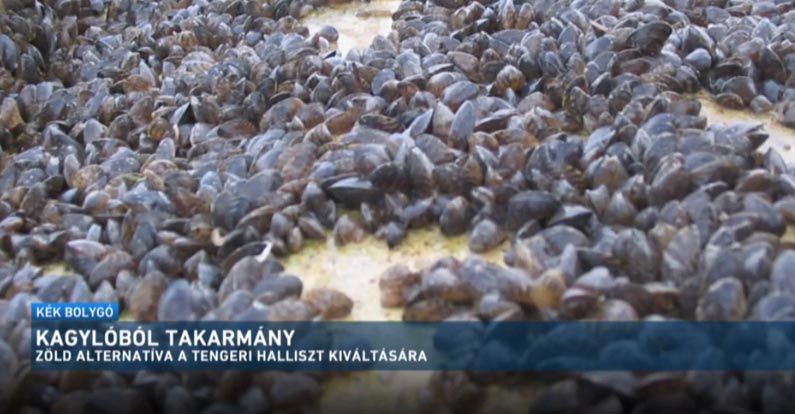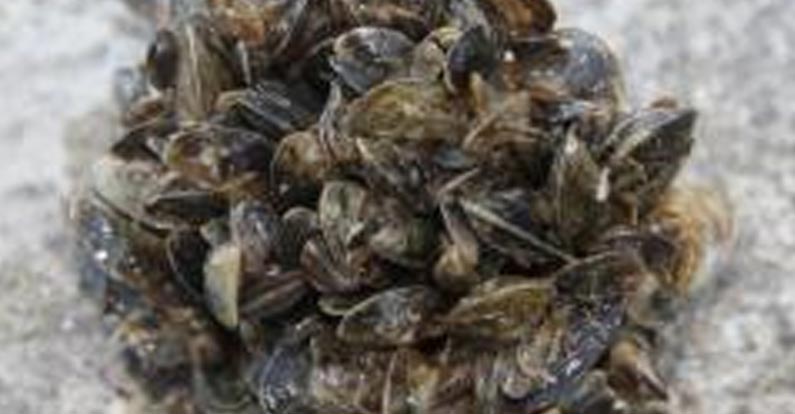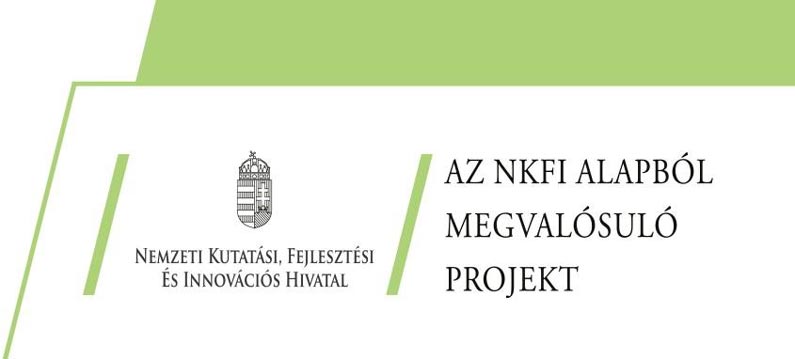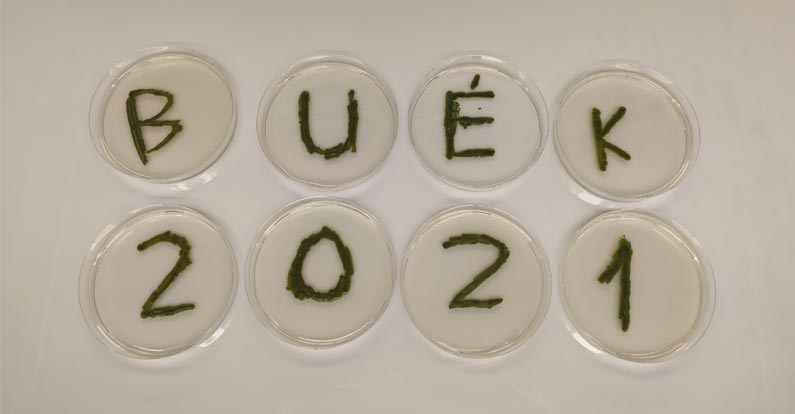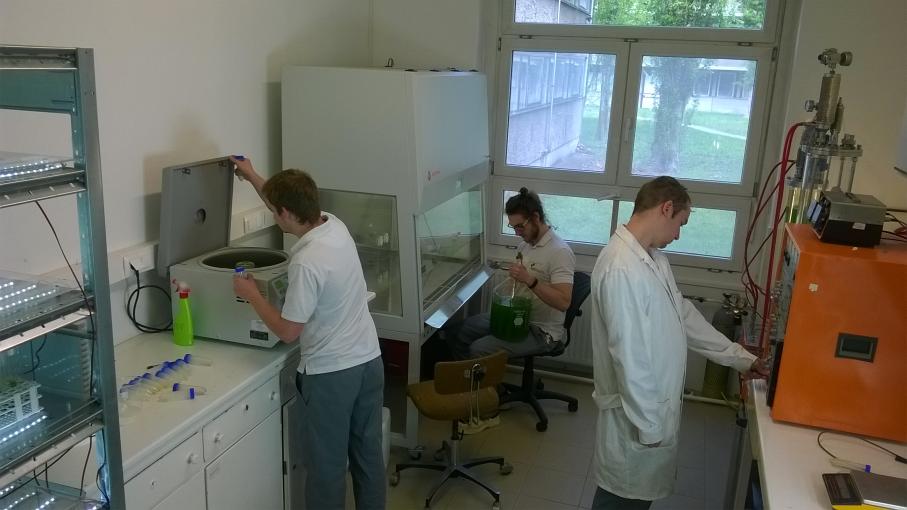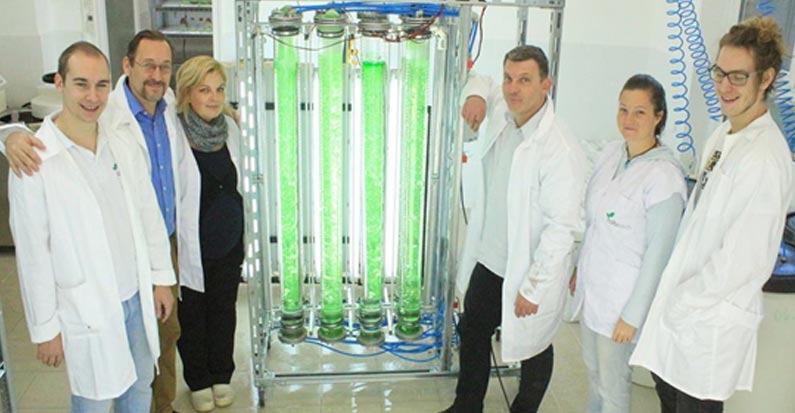Read Erika Greipel´s 2016 (Albitech Ltd.) abstract here!
 |
Erika Greipel Bioengineer M.Sc., researcher Head of laboratory at Albitech Biotechnological Ltd. E-mail: greipel.era@gmail.com Phone: 00 36 20 424 8668 |
 |
Measurement of intra- and extracellular cytokinin content of algae cultures and application of Scenedesmus sp. cultures for plant growth promotion – resulted the new foliar fertilizer of Albitech Ltd.
Erika Greipel1, Péter Futó1, Zsuzsanna Bencsik1, Attila Bencsik1, Annamária Kósa2, Péter Nyitrai3, Prof. Béla Böddi2, József Kutasi1
1: Albitech Biotechnological Ltd.
2: Eötvös Loránd Science University Department of Plant Anatomy
3: Eötvös Lóránd Science University Department of Plant Physiology and Molecular Biology
Abstract
Foliar fertilization is a widespread procedure in agriculture for applying inorganic fertilizers or other substances on the foliar surface of plants in order to enhance crop yield. Microalgae suspensions has been used for a long time for the purpose of phytostimulation, owing to their hormone-producing ability. In our work cytokinin content of Scenedesmus sp. BEA D01_12, Chlorella minutissima K2012 41 cultures were investigated. Prolification of algae was stimulated by the addition of Azospirillum brasilense NCAIM 001411 bacterial culture in a low concentration. Scenedesmus sp. cultures were also tested in greenhouse pot trials and small pot field studies. According to the results the algae suspension was effective on fruit, vegetables and cereal crops as well. Cucumber, tomato, apple, sweet pepper and sunflower have shown a significant increase of crop yield. Increased the number of flowers in sweet pepper and tomato, the root weight of sweet pepper, plant height and the number of seeds in maize and the oil content of the seeds in sunflower. In horticulture significant increase in the number of leaves and flowers was observed.
About the author
Born in Budapest (Hungary) and graduated B.Sc. and than M.Sc. degree in Bioengineering at Budapest University of Technology and Economics. She worked on the topic of Heterocypris incongruens immobilization test further development and application of micro-pollutants contaminated testing samples of liquid and solid phase and Isolation of filamentous fungi with cellulase activity from soil samples, perform various enzyme activity assays after shake flask fermentations at the University. She took part a 6 week-long traineeship at the Fermentation plant of Gedeon Richter Plc. (pharmaceutical industry).
Beside M.Sc. courses in 2010 she started to work at Albitech Biotechnological Ltd., she coordinates the inoculum preparation and other manufacturing operations of microalgae-based foliar fertilizer formulation and quality control, moreover she is carrying out research activities with different microalgal and soil bacterial strains. Since 2014 she is PhD. student at Eötvös Lóránd Science University where she study the interactions between
Scenedesmus rubescens green microalga and Azospirillum brasilense soil bacterium.
About the company
Albitech Biotechnological Ltd. is a dinamically developing Hungarian enterprise established in 2007 aiming at microalgae research and development other microalgae based products for agricultural or other purposes.
The fact that algae are suitable for large-scale biomass production could lead to a breakthrough in the biotechnological industry. Our goal is to introduce a new branch of the plant biotechnological industry in Hungary to be utilized in agricultural production by the screening and controlled, industrial-scale culturing of new algal strains capable of producing bioactive compounds. The first fruit of research was the microalgae based Algafix® phytostimulator, a growth-promoting spray-on which was has been authorized in 2010 and produced continuously in the photobioreactor plant at the company.
Several microalgae strains show phytohormone-like activity. Intensive auxin- and cytokinin-like plant growth hormone production has been observed in green algae species, recently. In agriculture, algae have been used as organic fertilizers or soil conditioners, however, interest has recently grown in their antimicrobial, anti-fungal and plant growth regulating (PGR) properties. The concentration of phytohormones in algae biomass range between 0.3 – 4,0 μg / kg wet weight which approximates that of higher-order plants. Industrial scale culturing of saltwater algae is not economical in Hungary, due to the treatment of large volumes of industrial wastewater with high salt concentrations. Our research confirmed that in optimized conditions, freshwater algae can produce and excrete plant growth promoting hormones, antimicrobial or antifungal substances in higher concentrations than saltwater algae and contain vitamins and trace-elements vital for plant health.
Technology-wise the axenic algal strains are selected and maintained by classic microbiological methods. The identified algal cell lines are preserved and cultured via closed-system sterile photofermentation. According to our new protocol the Scendesmus sp. BEA D01_12 is cultured in air lift photobioreactors. Production of industrial-scale volumes for agricultural use is implemented via scaling up. Laboratory-scale volumes of shaken liquid cultures are produced which go through culturing in several 2-10 l volume photobioreactors to reach 30 and 200 litre photobioreactors. Adequate light intensity is provided by high-power light sources to ensure proper growth rate. The production capacity has quadrupled in the past 4 years. A new technology developed in the last few years makes it possible to achieve a five-fold increase in the alga cell count.
In Albitech Ltd. there are currently six people working in our laboratories: Dr. József Kutasi PhD., co-owner and head of research, Attila Bencsik, co-owner and head of informatics and technology, two bioengineers: Erika Greipel MSc. (PhD-student at Eötvös Lórand Sicence University), Péter Futó MSc., an administrator, a laboratory and a fermentation assistant. Our young researchers have participated in both national and international conferences with oral and poster presentations. In the framework of granted research projects, our company has hosted bioengineering undergraduates from Budapest Technical University for traineeship and thesis work.

